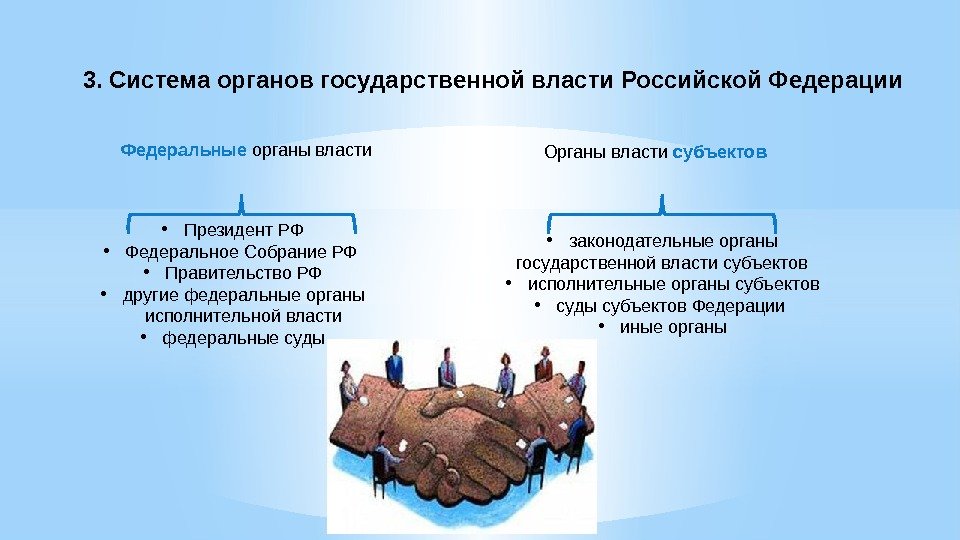In the Russian Federation, federal government bodies are the highest authorities. The federal government consists of three branches: executive, legislative and judicial. These authorities also include the President.
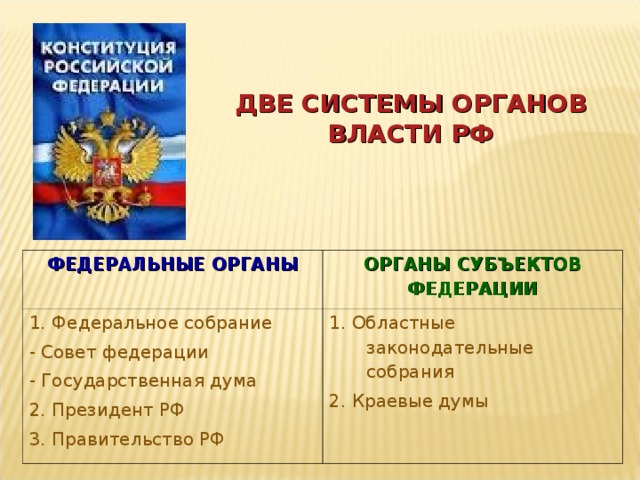
What are federal government bodies
In Russia, the President has leading positions in power structures. He is the top of the federal government, being both the guarantor of the Constitution, the head of state and the main link between the branches of government. However, he does not belong to any of them.
The legislative bodies consist of the Federation Council and the State Duma. Together they form the Federal Assembly. It is the compiler of laws that must be implemented throughout the country.
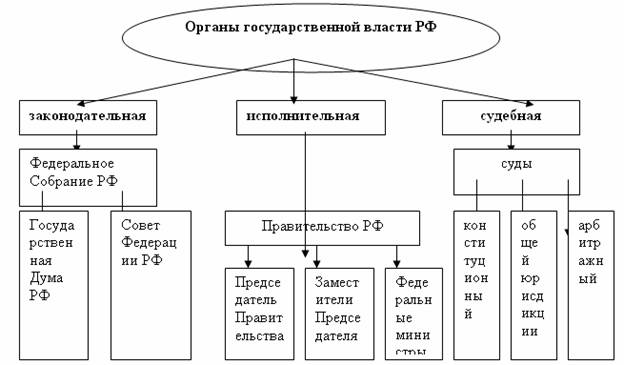
The executive branch is formed by federal state executive bodies. Their authority includes the publication of decisions, decisions and other acts of a by-law nature. The main executive authority in Russia is the Government of Russia. The branch divisions of the executive branch are subordinate to him: federal services, ministries, agencies and their territorial representations. All these bodies are approved by the President of Russia.
The judiciary unites federal courts. These are the Supreme Court of Russia, the Constitutional Court of Russia and other federal bodies. It is their responsibility to ensure justice.
The federal state bodies of the Russian Federation do not include the Central Bank.
President of Russia
The President of Russia has a list of powers that differs from that in other countries. Presidential power in Russia stands out in a special category of power. In our country, the President has broader authority. They are spelled out in the Constitution of the Russian Federation, and the passage of elections is regulated by Federal Law 19-F3 "On Presidential Elections".
The head of the Russian Federation relies on authorities close to him. One of them is the Security Council of the Russian Federation. It affects the domestic and foreign policies of the state and is concerned with national security. The President also supervises over this structure. He is the chairman of the Security Council. The Security Council holds meetings at which all decisions are made by voting, after which they are certified by a protocol and signed by the President.
The Security Council also holds meetings. They are held once a week with the participation of the chairman. Interdepartmental commissions act as working bodies. The composition of these commissions is approved by the secretary of the Security Council. Members of the Council are approved by the President.
Another such structure is the State Council of the Russian Federation. This body is designed to help the President in the exercise of his powers in matters of interaction between state authorities. The State Council holds meetings. They pass 1 time in 3 months. Decisions made are recommendations. The State Council may initiate the creation of working groups where scientists and other specialists may be involved.
The main functions of the President of the Russian Federation
The range of functions of the highest official of the country:
- Serve as the guarantor of the Constitution, ensuring the freedoms and rights of citizens.
- Ensure coordination in the actions of public authorities.
- Maintain the sovereignty of the Russian Federation.
- Identify priorities in the domestic and foreign policy of the state.
- To take part on behalf of the country in international meetings, forums, relations.
Protection of the Constitution and its strict observance is one of the main areas of activity of the President.
Federal Assembly
The Federal Assembly is the legislative body and adopts laws at the federal level. It consists of the State Duma and the Federation Council. The State Duma includes 450 deputies from various factions who are elected during the all-Russian elections. The Federation Council includes 178 legislators. It includes representatives of all constituent entities of the Russian Federation.
The State Duma works separately from the Federation Council.
One of the main tasks of the Federal Assembly is the approval of the country's budget, which is being prepared by the Government of the Russian Federation. At the same time, the Duma is considering the budget, which is then sent to the Federation Council for approval in the form of a federal law.
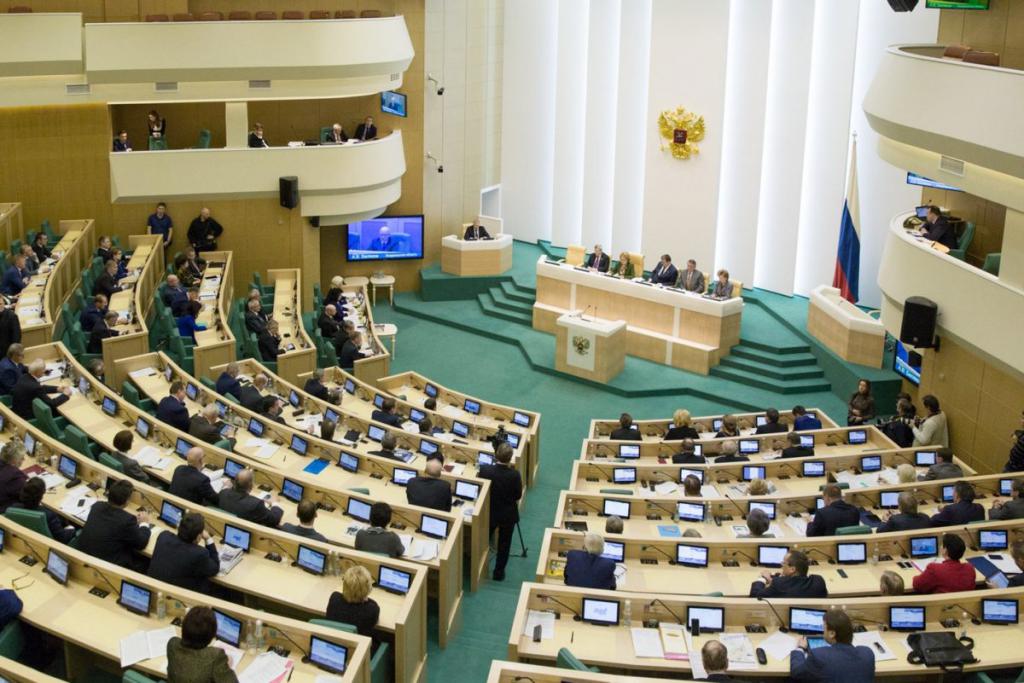
A specific feature of the powers of the State Duma is the adoption of various federal laws. This process usually goes through 3 stages called readings. The first is a general discussion of the draft law and conceptual aspects. The second is a more detailed analysis of all articles of the bill. At the third stage, a vote is taken for or against the adoption of the law under discussion. It is already impossible to make any changes to the law at this stage.
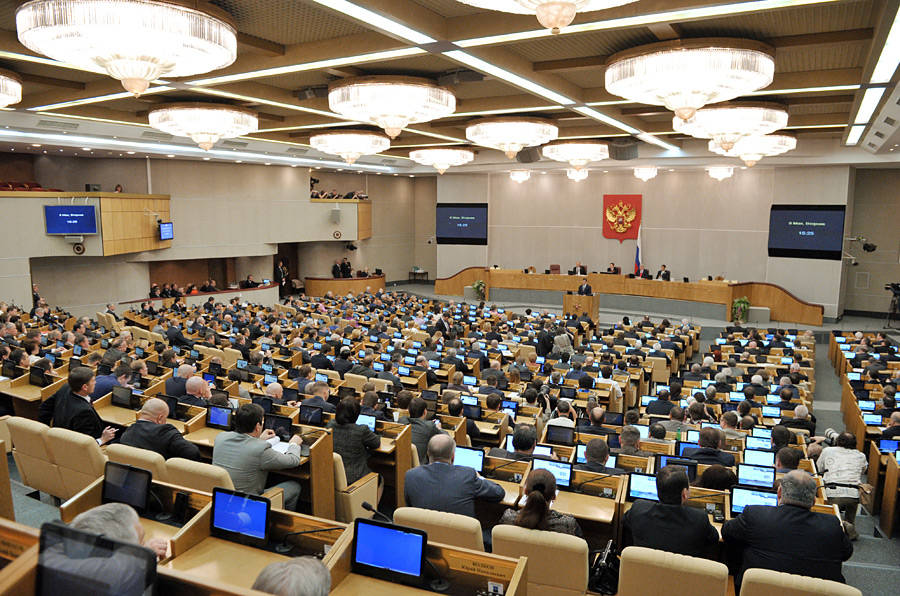
For the law to be adopted, more than 50% of the deputies must vote for it. If a constitutional law is adopted, then this figure is higher - at least 2/3 of the number of participants.
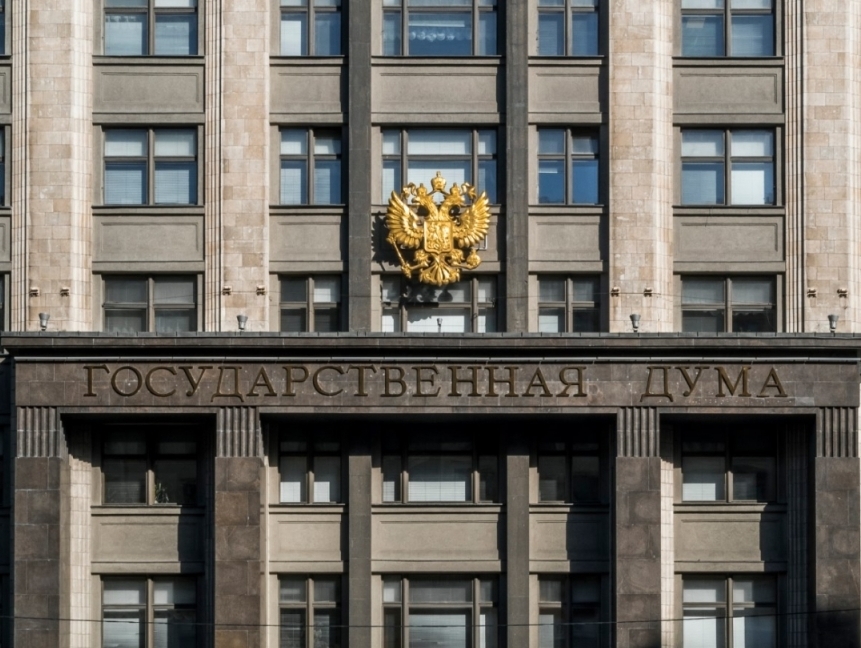
After adoption by the State Duma, the law must be approved by the Federation Council, and only in this case it acquires legal force. An underdeveloped or inappropriate law in the current situation may be rejected. For approval of the law by the Federation Council, its support by a majority (more than half) of the members of the chamber is necessary. If the Federation Council does not consider this law within two weeks, it will be adopted automatically, with the exception of laws of special importance.
The State Duma may initiate the early resignation of the President, and if this initiative is approved by the Federation Council, then the head of the country will be obliged to resign. The grounds for resignation may be intentional sabotage, espionage, bribes, egregious abuse of power, war crimes, etc.
Government of the Russian Federation
The government belongs to the executive branch of the federal public service and consists of the chairman, deputy chairmen and ministers. The government is responsible for developing the country's federal budget, a draft of which is being submitted for approval to the State Duma. It can make decisions regarding federal spending, including those related to the social sphere.
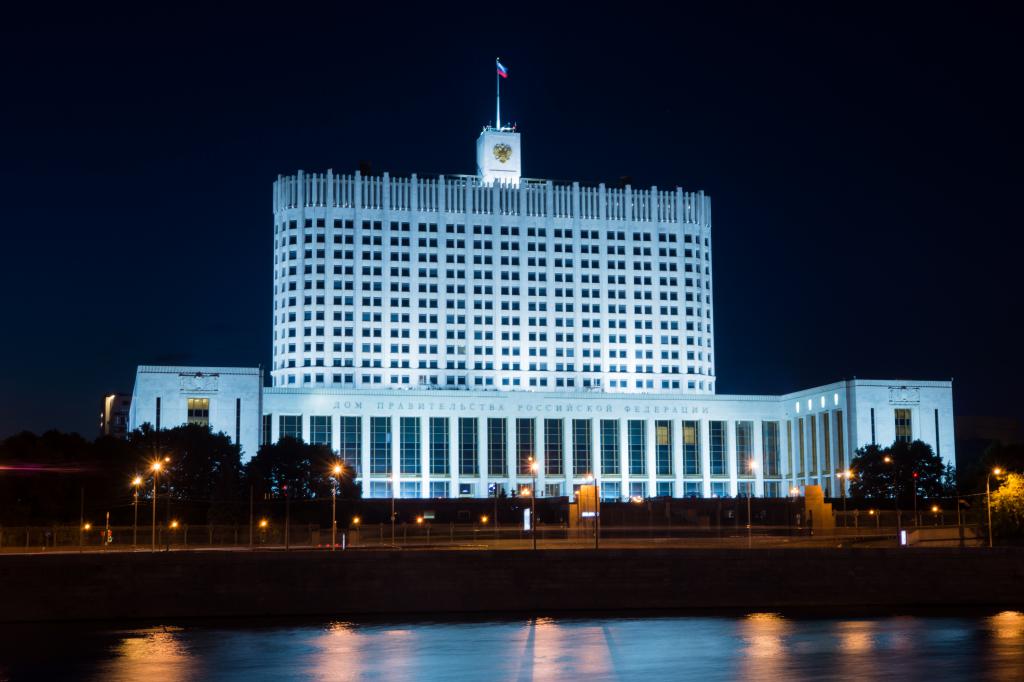
The main directions of work of the Government
Terms of reference of the Government:
- Implementation of reforms, optimization of financial policies, including those aimed at reducing the country's budget deficit.
- Carries out a policy in the field of science, culture, health, education, ecology and social security.
- He is in charge of various objects of federal property, including railways, enterprises, structures and so on.
- Works on military equipment and fulfilling social obligations to the military.
- It monitors the observance of human rights, public order, and the implementation of federal laws.
Judicial Authorities
In the Russian Federation, federal government bodies include the judicial system. Their main task is to ensure justice. The main branches of the federal judicial system of the country are: the Supreme Court, the Constitutional Court, the Supreme Arbitration Court.
Conclusion
Thus, the federal state bodies of Russia are components of the executive, legislative, and judicial branches. Each of them is endowed with his individual powers and performs the functions prescribed to him by the Constitution.
